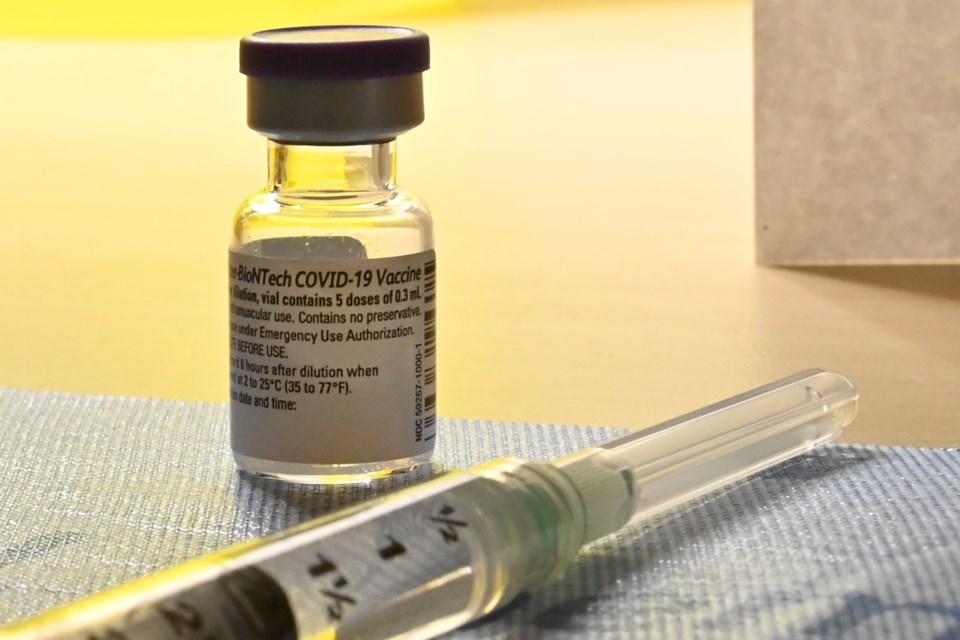A fear of needles is among the factors that could cause people not to get vaccinated against COVID-19 and it is important to address the problem when there is a need to get as many people vaccinated as possible, says an expert.
"It's pretty well documented that you don't have to have a phobia to actually interfere with you participating in procedures like vaccination," said Dr. Anna Taddio, a professor at the University of Toronto's Leslie Dan faculty of pharmacy.
"Just the fact that you're afraid means it's going to be an additional barrier to getting you comfortable with getting vaccinated."
A mass vaccination program to protect Canadians against COVID-19 began in late December, and while officials have addressed concerns about the safety of vaccines, some people suffer from a more primal fear or phobia — needles.
Dr. Daniel Chorney, a psychologist who lives in Halifax, said he developed a phobia of intravenous injections in his late 20s and early 30s.
Chorney has hemophilia, which requires him to have intravenous injections to help his blood clot if he is injured.
"So, a couple years ago, I was getting an injection and I fainted," he said.
"And the next time I went in to get the same injection, I had the same reaction. It was a very strong feeling of wanting to think it through but passing out."
He dealt with the phobia for a year or two before getting treatment from his nursing and health team.
The sight of blood or a needle in his vein made him sick and anxious, causing him to pass out.
"I'm a psychologist, I know that there is effective treatment," Chorney said.
"For three years I just looked away. I was able to overcome my fear, but it was pretty challenging."
Fear of needles is a broad term, which includes the drawing of blood, intravenous procedures and vaccinations, he said.
Dr. Katie Birnie, an assistant professor at the University of Calgary's department of anesthesiology, perioperative and pain medicine, said it is important to distinguish between needle fear and phobia.
Some people have a fear of needles but they tolerate them, she said, but up to 10 per cent of the population has a phobia of needles, which is a mental health issue.
People with a phobia avoid needles at all costs, she said.
"They avoid health care because their needle fear is so high they might have a panic attack or other types of very extreme anxiety responses when it is even just the thought of a needle."
Taddio said there are different ways to address the fear of pain from a needle including the use of a numbing cream, sitting in a comfortable position, and even use of calming language before the procedure. But the phobia requires help from a mental-health expert.
The fear and phobia of needles is a "silent barrier" that affects not just vaccinations but other chronic illnesses, she said.
The fear of needles affects people of all ages, she said, and it begins in childhood after a negative experience.
Taddio said pictures of people being immunized can also affect those with a phobia, and media photographs could influence decisions about whether to get vaccinated.
"You know how people make decisions about how to get vaccinated? It's very complex, right?" she said.
"It's not linear. It's not mathematical. It's emotional. We make our decisions based on how we feel. And so even a mild needle fear can be enough to make somebody not want to be vaccinated. It’s all going to contribute to that decision-making process."
This report by The Canadian Press was first published Jan. 7, 2021.
Hina Alam, The Canadian Press



